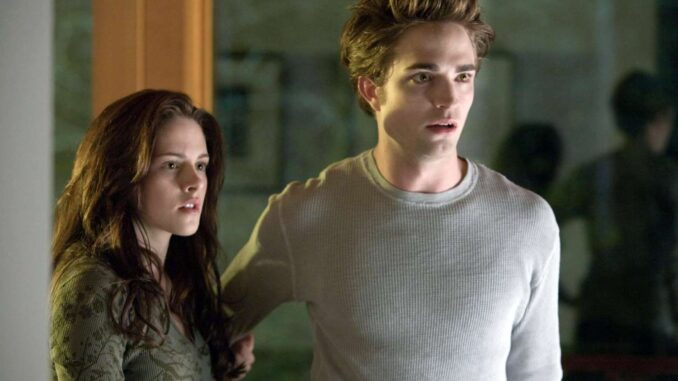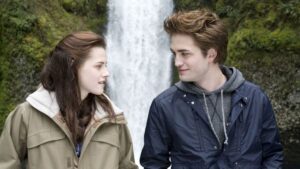
The Twilight Saga’s domination lives again with Breaking Dawn – Part 1
They’re baa-ack. Bella, Edward and Jacob crushed the North American opposition as The Twilight Saga: Breaking Dawn – Part 1 took an estimated $139.5m in its opening weekend. This is the fifth-biggest opening weekend in Hollywood history, ranking one place behind New Moon’s $142.8m. The $144m international weekend launch puts worldwide ticket sales over the first five days at $283.5m and pushes the Twilight franchise past $2bn in worldwide ticket sales. Part 2 comes out in late 2012 and I’d say there’s a strong chance the series will cross $3bn.
Twilight continues to be a great endorsement of the independent sector. Commercial screenplays (regardless what one might think of the story or genre) backed by smart producers and sales agents with links to capital can draw top-notch talent, but the projects must be commercially sound and need to get made for a reasonable price. Once budgets spiral, problems can arise and sales agents – the men and women charged with selling distribution rights to international buyers before the movie is completed as a way of raising production funds – have played a part in keeping costs down. It’s their belief that producers have unrealistic budget expectations and they’ve worked hard over the past couple of years to educate their partners in this area.

When a well-structured indie project goes to market it can attract the best film-making talent. We’ve seen more of this in the past 12 months or so. In February Ron Howard will start shooting Rush, a drama about the rivalry between 1970s Formula 1 titans James Hunt and Niki Lauda based on a screenplay by the ubiquitous Peter Morgan. It’s Howard’s first non-studio project in more than a quarter of a century. The Brad Pitt crime thriller Cogan’s Trade, the Mark Wahlberg-Russell Crowe crime noir Broken City and the Gerard Butler and Matthew McConaughey wartime thriller Thunder Run are just three examples of other numerous indie projects that have had the appeal to entice A-list talent. Watch out for them in the coming year or so: there’s a good chance they’ll get acquired by big distributors. The Weinsteins have already snapped up Cogan’s Trade.
Finally, a word on this season’s documentary Oscar race, which as usual is as notable for its worthy contenders as it is for its scandalous omissions. The academy announced last week that 15 movies would proceed to the next voting stage. Of these, five will be unveiled as Oscar nominees in January. Deserving selections include the horse whisperer story Buck, the miscarriage of justice movie Paradise Lost 3: Purgatory and If a Tree Falls: A Story of the Earth Liberation Front. But where are Steve James’s The Interrupters (a towering achievement), Werner Herzog’s disturbing Into the Abyss and Asif Kapadia’s popular Senna?
Do you know who hates the Guardian?
The billionaires creating a world that’s more unequal than ever.
The populist politicians spreading discord and misinformation.The fossil fuel executives watching the planet burn as their profits swell.The tech giants shaping a new world around us without scrutiny.And do you know who does like us? People who believe in a free press. People who believe that the truth should be available to everyone. And people who recognize the importance of challenging those in positions of power and influence. Does that sound like you ?
The Guardian doesn’t have an ultra-rich owner. No one tells us what to write – or what not to write. We’ll stand up to expensive legal threats to bring readers the truth. Often on stories that no one else will touch
